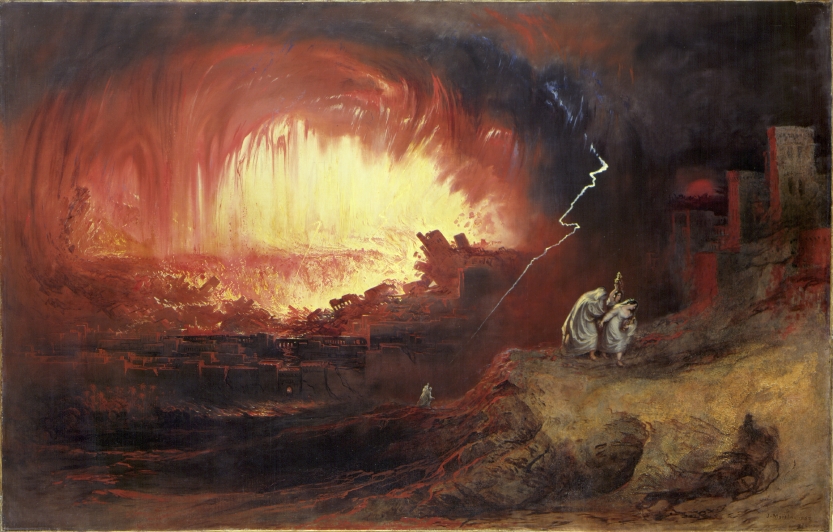Cross posted at God is for Suckers!
 This bit of religious skullduggery caught my eye recently:
This bit of religious skullduggery caught my eye recently:
Shroud mystery 'refuses to go away'
There are very few Christian relics as important and as controversial as the Shroud of Turin.
This linen cloth, measuring about 4.4m by 1.1m (14.4x3.6 feet) holds the concealed image of a man bearing all the signs of crucifixion.
Which begs the question: has anyone ever run tests on any other 'shroud' besides this one?
Scientific tests have proved that there are blood stains around the marks consistent with a crown of thorns and a puncture from a lance to the side.
Ummm...no. This isn't the whole story.
There are several reddish stains on the shroud suggesting blood. McCrone (see above) identified these as containing iron oxide, theorizing that its presence was likely due to simple pigment materials used in medieval times. Other researchers, including Alan Adler, a chemist specializing in analysis of porphyrins, identified the reddish stains as type AB blood and interpreted the iron oxide as a natural residue of that element always found in mammalian red blood cells.
[...]
The particular shade of red of the supposed blood stains are problematic, according to skeptics of the shroud's authenticity. Normally, whole blood stains discolor relatively rapidly, turning to a black-brown shade, while these stains range from a red to a brown color. Skeptics claim that: " Blood has not been identified on the shroud directly, but it has been identified on sticky tape that was used to lift fibrils from the shroud. Dried, aged blood is black. The stains on the shroud are red. Forensic tests on the red stuff have identified it as red ocher and vermilion tempera paint." and that if there is blood: "it could be the blood of some 14th century person. It could be the blood of someone wrapped in the shroud, or the blood of the creator of the shroud, or of anyone who has ever handled the shroud, or of anyone who handled the sticky tape. But even if there were blood on the shroud, that would have no bearing on the age of the shroud or on its authenticity.
Until the 1980s, millions of Christians around the world believed the Shroud to be the burial cloth of Christ.
Put simply, it meant that for millions of people the Shroud was, in effect, a Polaroid of Jesus' death - a snapshot of the defining moment in Christianity. It put the Shroud in a league of its own in the realm of the most important Christian relics.
But in 1989, the significance of the Shroud seemed to evaporate after a radiocarbon dating test pronounced a stunning verdict - the Shroud of Turin was indisputably a medieval fake.
Again, not the whole story (from previous link):
In 1988, the Holy See agreed to permit six centers to independently perform radiocarbon dating on portions of a swatch taken from a corner of the shroud, but at the last minute they changed their minds and permitted only three research centers to independently perform radiocarbon dating. All three, Oxford University, the University of Arizona, and the Swiss Federal Institute of Technology, agreed with a dating in the 13th to 14th centuries (1260–1390).The scientific community had asked the Holy See to authorize more samples, including from the image-bearing part of the shroud, but this request was refused. One possible account for the reluctance is that if the image is genuine, the destruction of parts of it for purposes of dating could be considered sacrilege. Another possibility is that the Church is reluctant to risk exposing the Shroud as a forgery.
My bets on the latter. Any takers?
Mr Jackson, a lecturer in physics and cosmology (author's note: I introduced this link, since obviously Mr. Jackson doesn't practice this form of it.)
, introduced me to a wealth of fresh historical and forensic evidence that linked the Shroud of Turin to two earlier Shrouds of Christ.
The first was in Constantinople and mysteriously disappeared in the sack of the city in the Fourth Crusade in 1204. The second is, of course, the Shroud referred to in the Gospels.
Who is this mysterious Mr. Jackson? None other than John P. Jackson, director and founder of TSC - The Turn Shroud Center of Colorado. Methinks me catches a whiff of presuppositionalism here.
The irresistible force of science seems to have hit an immovable object. The mysterious image of a crucified man has refused to lie down and die.
The 'immovable object' seems to be the traditional wall of ignorance erected by the religious. What a shock.
The new evidence raises a question mark over that carbon-14 verdict. Should the margin of error have been wider? Could the image on the Shroud have been forged earlier in time?
Anyone who does more than a 5 minute investigation into the maelstrom of yea-sayers and nay-sayers, will likely be blinking their eyes at it as I did. The damn thing's been more handled than Warren Beatty's unmentionables. Contamination, anyone? Nuns patched it up after a fire. From the answers.com link:
There are numerous reports of Jesus' burial shroud, or an image of his head, of unknown origin, being venerated in various locations before the fourteenth century.[2] However, none of these reports has been connected with certainty to the current cloth held in the Turin cathedral. Except for the Image of Edessa, none of the reports of these (up to 43) different "true shrouds" was known to mention an image of a body.
And yes! There was a denunciation:
In 1389, the image was denounced as a fraud by Bishop Pierre D'Arcis in a letter to the Avignon Antipope Clement VII, mentioning that the image had previously been denounced by his predecessor Henri de Poitiers, who had been concerned that no such image was mentioned in scripture. Bishop D'Arcis continued, "Eventually, after diligent inquiry and examination, he discovered how the said cloth had been cunningly painted, the truth being attested by the artist who had painted it, to wit, that it was a work of human skill and not miraculously wrought or bestowed." (In German: [4].) The artist is not named in the letter.
I'm including here a more exacting analysis that really rips the shroud a new one.
It's a worn piece of cloth (cunningly wrought, I'll grant you that), a vestige of dirty laundry from the Middle Ages that should be de-classified as a mystery and instead, slotted as a fraud like so many other religious forgeries. More of an example of how the religious 'see it the way they call it'.
For a more humorous explanation, watch this short video.
I'd advise Jackson to get a hobby.
Till the next post, then.
















